Is your dog losing hair faster than usual? Does it have bald spots or a thinning coat? Excessive hair loss in dogs can be caused by many things, from parasites and infections to allergies and diet. If your dog is losing hair, it’s important to determine the cause and take steps to address the problem. This blog post will discuss some of the most common causes of hair loss in dogs, and offer tips on how to remediate the issue. So keep reading if you want to know how to stop the hair fall off my dog!
Learn More: Vaginitis in Dogs-Complete Overview And Guide
12 CAUSES OF HAIR FALL IN DOGS
Hairfall in dogs can be caused by a variety of things. It can be due to allergies, hormonal imbalances, infections, or even stress. Here are seven common causes of hair loss in dogs.
1. Allergies
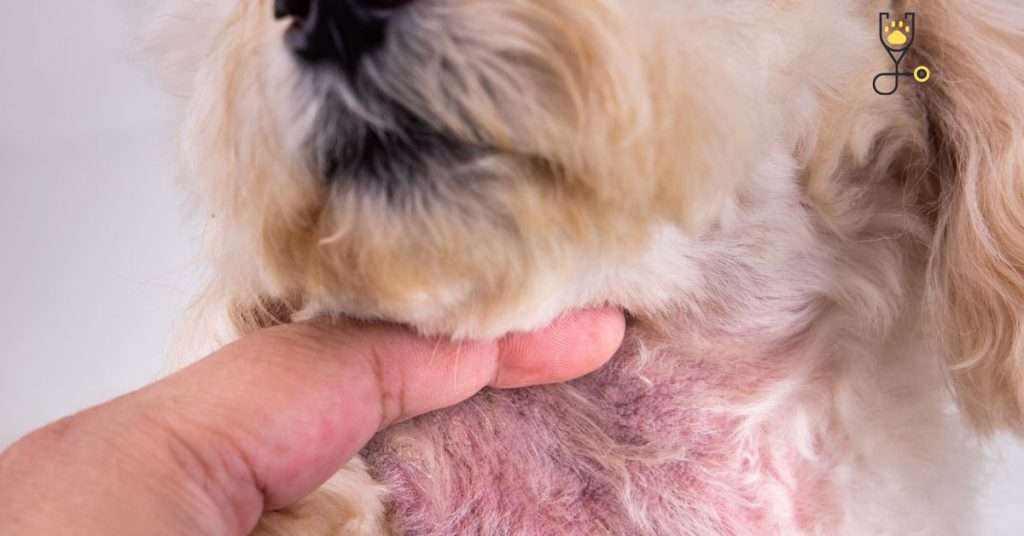
Dogs can be allergic to a variety of things in their environment, including pollen, dust mites, and mold. When a dog comes into contact with an allergen, its immune system overreacts and causes inflammation. This can lead to hair loss, as well as other symptoms like itching, redness, and swelling.
Read more: Common Skin Allergies in Dogs.
2. Hormonal Imbalance
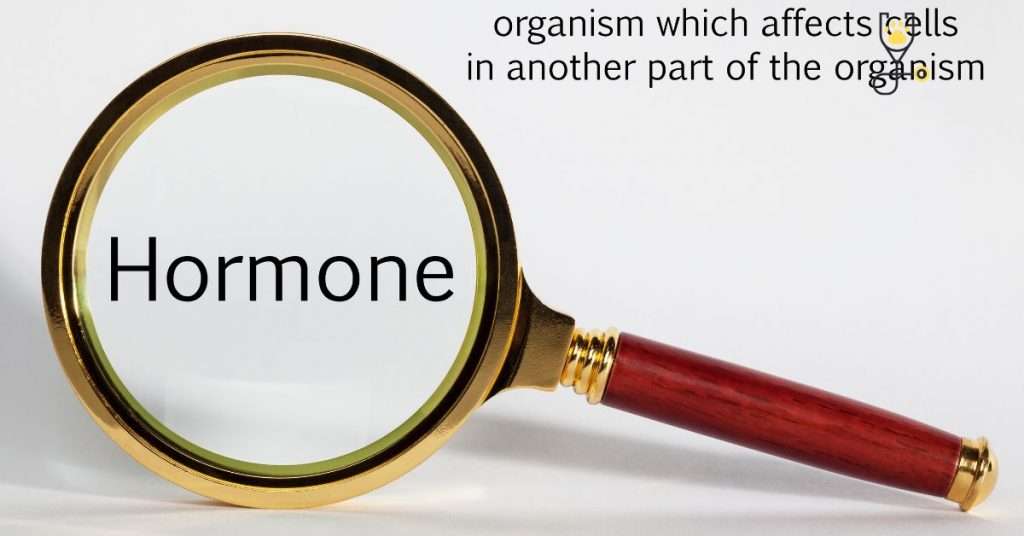
A hormonal imbalance can cause a number of problems in dogs, including hair loss. Common causes of hormonal imbalances include hypothyroidism (an underactive thyroid gland) and Cushing’s disease (an overproduction of the hormone cortisol). If your dog is losing hair and has other symptoms like weight gain, excessive thirst, or tiredness, it may have a hormonal imbalance. Your veterinarian can test for these conditions and prescribe treatment if necessary.
Read More: What to do if your dog’s teeth are shedding down? Causes, symptoms, and treatment
3. Infections
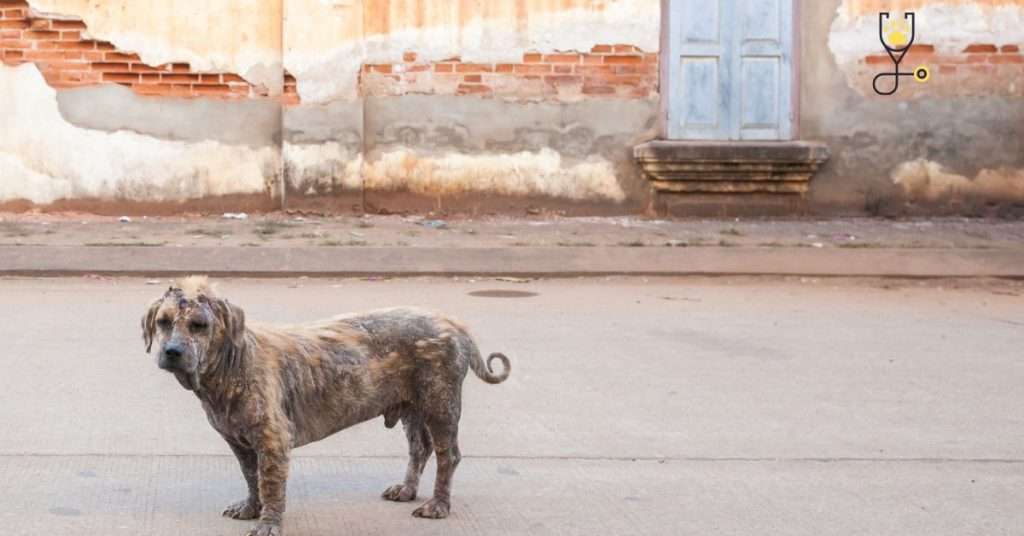
Bacterial and fungal infections are common causes of hair loss in dogs. Skin infections are often caused by allergies or hormonal imbalances, which can lead to hair loss. If your dog has any open wounds or hot spots on their skin, they may also be susceptible to bacterial infections. Fungal infections usually affect the nails and cause them to become brittle and fall off. If your dog is losing hair and has any other symptoms of an infection, such as fever, lethargy, or loss of appetite, they should see a veterinarian right away.
Read More: What to do when your dog has folliculitis?
4. Stress
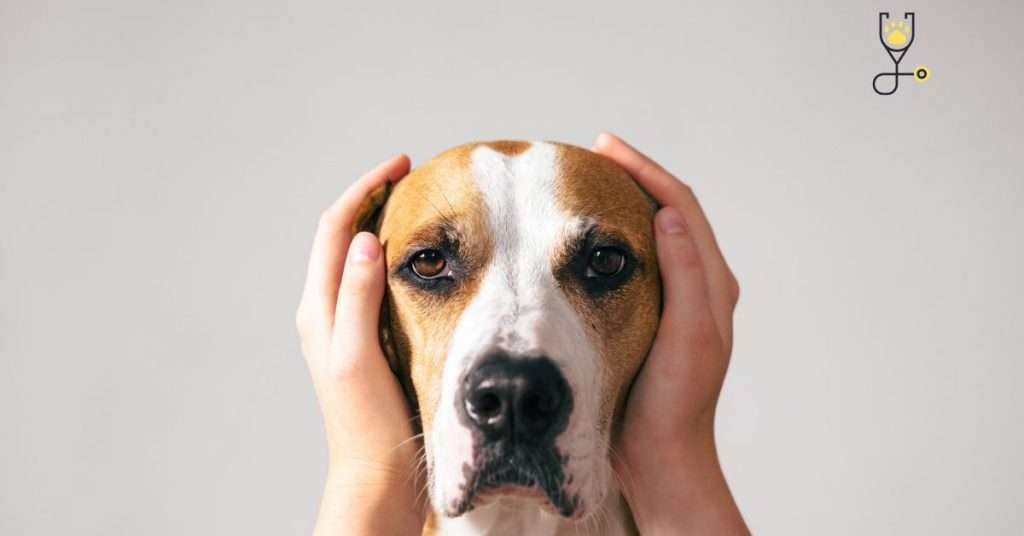
Just like humans, dogs can experience hair loss due to stress. Dogs may start to lose hair if they are dealing with a major life change, such as a move to a new home or the death of a family member. If your dog is showing signs of stress, such as panting, pacing, and restlessness, talk to your veterinarian about ways to help them cope.
Read an owner’s post: How I Helped My Pet Overcome Anxiety and Depression.
5. Nutritional Deficiencies

Hair loss can also be caused by nutritional deficiencies. Dogs who don’t consume enough protein or essential fatty acids may start to loose hair. If your dog is not eating a well-balanced diet, talk to your veterinarian about changing their food or adding supplements.
Read More: How to Choose the Right Dog Food For Your Dog.
6. Immune Disorders

Certain immune disorders can cause hair loss in dogs. Autoimmune disorders occur when the body’s immune system attacks healthy tissue, mistaking it for a foreign invader. This can lead to inflammation and hair loss. Allergies are also a type of immune disorder that can cause hair loss. If your dog has any symptoms of an immune disorder, such as excessive itching, redness, or swelling, they should see a veterinarian for diagnosis and treatment.
7. Cancer
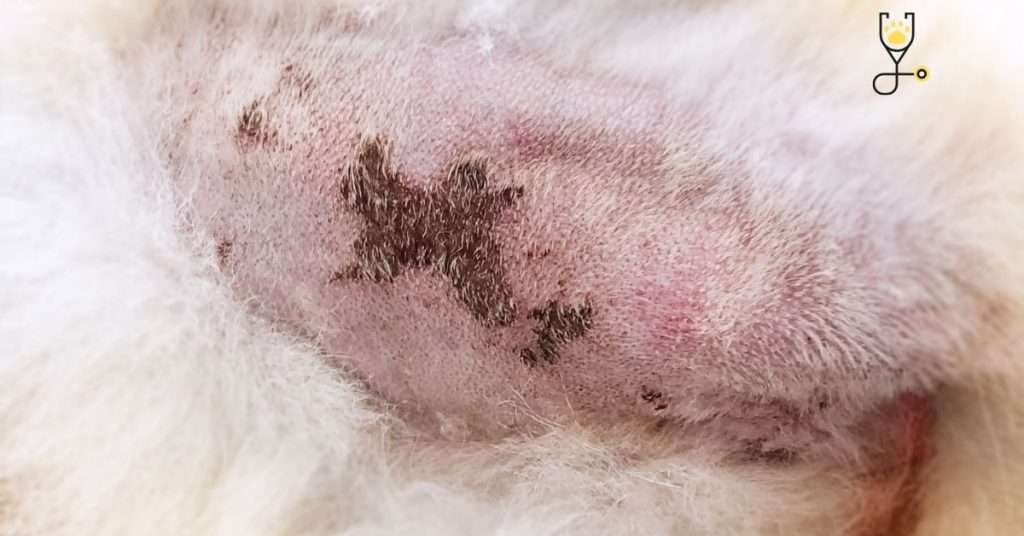
Cancer is a rare but possible cause of hair loss in dogs. Some types of cancer, such as lymphoma and leukemia, can cause hair loss. If your dog has any other symptoms of cancer, such as weight loss, lethargy, or appetite changes, they should see a veterinarian right away for testing and treatment.
Learn More: Why Has My Dog’s Eye Swollen? And Getting Red!
8. Over-Grooming

Over-grooming is a common cause of hair loss in dogs. Dogs may start to over-groom if they are anxious or stressed. This can lead to bald spots and open wounds on the skin. If you think your dog is over-grooming, talk to your veterinarian about ways to help them relax and reduce their stress.
Learn More: German Shepherd Coat Care and Grooming Tips
9. Ringworm
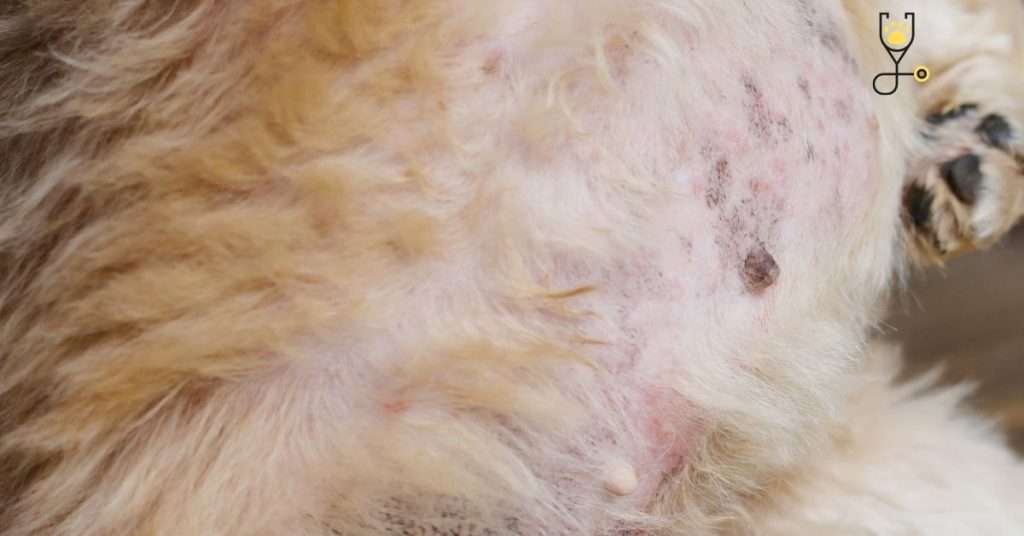
Ringworm is a type of fungal infection that can cause hair loss in dogs. It is often spread through contact with other animals or contaminated objects. Ringworm usually causes a circular patch of hair loss with raised edges.
10. Trauma
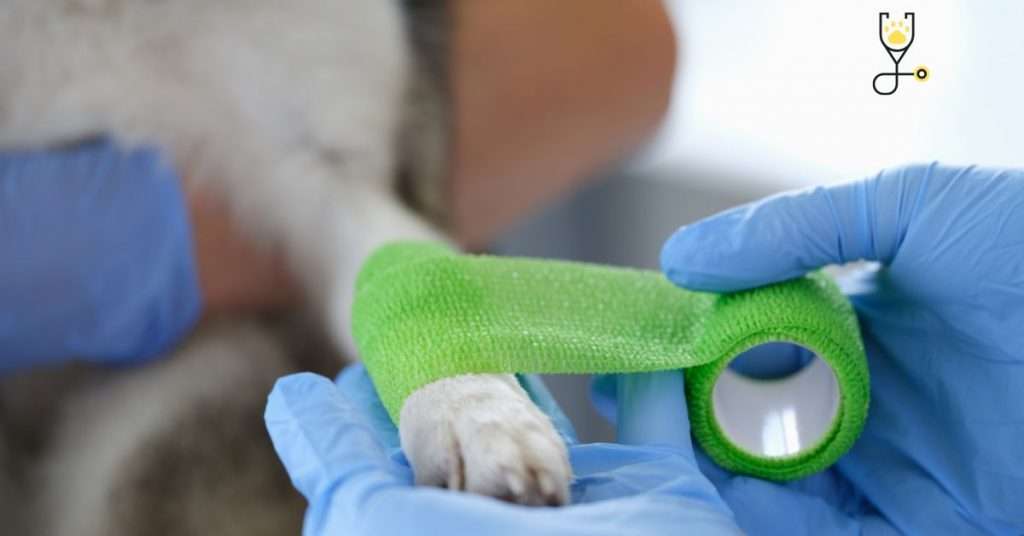
Trauma to the skin can also lead to hair loss. Dogs may lose hair if they are injured in a fight or accident. Burns, frostbite, and other types of skin damage can also cause hair loss. If your dog has any open wounds or bald spots on their skin, they should see a veterinarian for treatment.
11. Seasonal changes

Dogs may start to lose hair due to seasonal changes. In the winter, dogs may suffer from dry skin and static electricity, which can lead to hair loss. In the summer, hot weather and humidity can cause hair loss.
12. Keratinization
Keratinization is a normal process that occurs when the hair follicles produce too much keratin. This can cause the hair to become brittle and break off. Dogs with keratinization may have dry, flaky skin and bald spots. If you think your dog has this condition, talk to your veterinarian about treatment options.
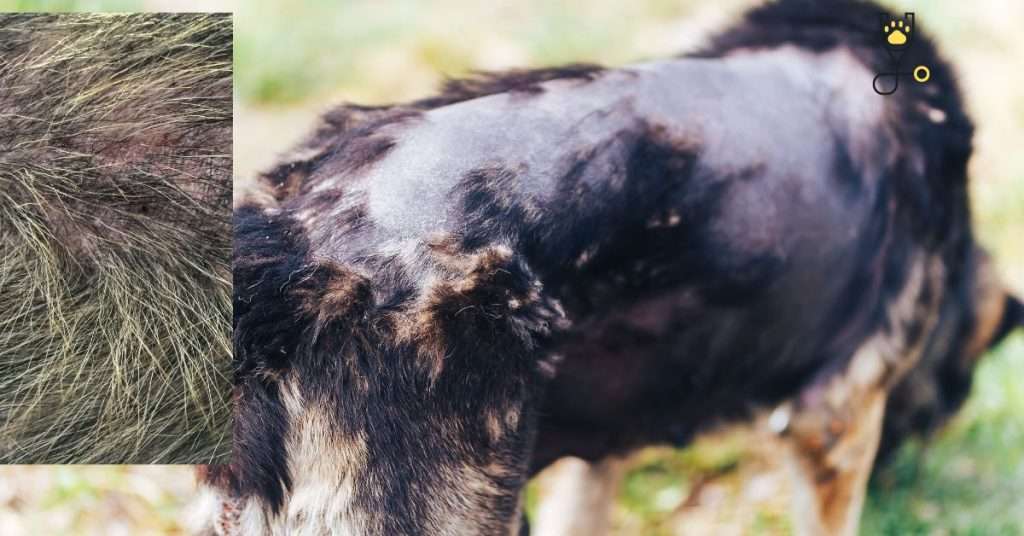
TREATMENT OF HAIR FALL IN DOGS
- The first step in treating hair loss is to identify the underlying cause.
- If your dog is suffering from an infection, it will need to be treated with antibiotics or antifungal medications.
- If stress is the cause of hair loss, your veterinarian may recommend changes to your dog’s environment or diet, and supplements to help them relax.
- If nutritional deficiencies are the cause of hair loss, your veterinarian will recommend changes to your dog’s diet and may prescribe supplements.
- If your dog has an immune disorder, it will need to be treated with immunosuppressive drugs.
- If cancer is the cause of hair loss, your dog will need to undergo treatment with chemotherapy or radiation therapy.
- If your dog is over-grooming, your veterinarian may recommend changes to their environment and diet and anti-anxiety medications.
- If ringworm is the cause of hair loss, your dog will need to be treated with antifungal medications.
- If trauma is the cause of hair loss, your dog will need to be treated with antibiotics or other medications depending on the extent of their injuries.
- If seasonal changes are the cause of hair loss, your veterinarian may recommend changes to your dog’s diet and supplements to help them cope.
- If keratinization is the cause of hair loss, your veterinarian may recommend changes to your dog’s diet and supplements to help them cope.
CONCLUSION
Hair loss can be a sign of many different medical conditions in dogs. If you notice your dog is losing hair, it is important to take them to a veterinarian for diagnosis and treatment. With proper treatment, most causes of hair loss are manageable and your dog can live a happy and healthy life.
This was a complete guide on how to stop the hair fall on your dog. We hope you found this article helpful. If you have any questions or concerns, please feel free to drop your comment below!
Learn All About Common Health Issues in Dogs & Their Prevention in our detailed guide here.
FAQS
1. What are the most common causes of hair loss in dogs?
There are many different causes of hair loss in dogs, but some of the most common include infections, allergies, stress, nutritional deficiencies, and cancer.
2. Can hair loss be a sign of a serious medical condition?
Yes, hair loss can be a sign of a serious medical condition. If you notice your dog is losing hair, it is important to take them to a veterinarian for diagnosis and treatment.
3. How can I prevent my dog from losing hair?
There is no sure way to prevent all cases of hair loss in dogs, but you can help reduce the risk by keeping your dog healthy and free from stress. You should also talk to your veterinarian about any potential allergies or medical conditions that could cause hair loss.
4. How do I know if my dog is over-grooming?
If your dog is licking or biting their skin more than usual, they may be over-grooming. This can lead to hair loss and other medical problems. If you think your dog is over-grooming, talk to your veterinarian about treatment options.
5. My dog is losing hair in patches. Is this normal?
Hair loss in patches can be a sign of many different medical conditions, including infections, allergies, and cancer. If you notice your dog is losing hair in patches, it is important to take them to a veterinarian for diagnosis and treatment